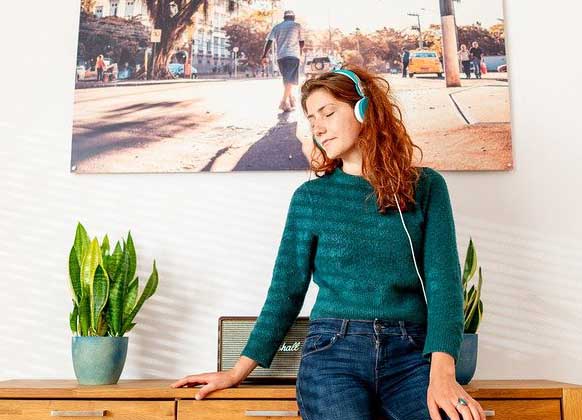Specialist recruiter Randstad has revealed that nearly a third of workers (31%) claim that their mental wellbeing is better working from home. The survey was carried out to help raise awareness of World Mental Health day, and further educate the nation’s employers on how to ensure their staff are mentally healthy as they work remotely.

With government regulations recently changing to encourage office-based staff to once again work from home where possible, many who had adjusted back to working in an office environment are having to re-adapt to home working.
In most cases however this is good news. The ‘new normal’ setup boasts fewer distractions, less commuting and a better work/life balance – it’s no surprise that nearly 200 respondents agree that their mental health is better working from the comfort of their own home.
Missing a sense of normality?
Being away from the hustle and bustle of the working environment isn’t for everyone however, the poll of over 600 UK jobseekers also discovered that a quarter (28%) of employees feel that their mental wellbeing is for the better when they are office-based.
While some are excited to get back to their place of work, waiting to return to life in the new normal, others are experiencing a fear of contracting the virus, career uncertainty, a long uncomfortable commute, unwanted interactions with certain colleagues or a sadness about the loss of things gained during lockdown or working from home life.
With the pandemic causing obvious disruption to the working lives of the majority, feelings of uncertainty are not unjustified. Previous research carried out by Randstad revealed that more than half of UK workers fear they could lose their jobs as a result of the COVID-19.
What workers want.
It’s no secret that employees appreciate an employer that allows flexible working options. Randstad’s 2020 employer brand research highlighted that the most attractive nonmonetary benefits desired by employees are centred around flexibility, with flexible working hours and being able to work from home being two of the top three key drivers.
Flexibility has long proven to be a key contributor towards positive mental wellbeing, and this has been reinforced by the recent poll data with more respondents feeling more comfortable at home than in the office.
Employer benefits.
While the majority of respondents (41%) state that their mental wellbeing is the same if they are at home or in the office, employers can also find peace of mind with regards to health and productivity of their staff. Research carried out by Finder.com revealed that 83% of employees feel they do not need an office to be productive. Additional research also found that remote workers are not only happier but they are also healthier than their office based counterparts, taking an average of 2.4 sick days a year as opposed to the 2.6 days taken by office based employees.
Graham Trevor, Randstad UK HR and Corporate Services Director said:
“Although our recent findings suggest that mental wellbeing when linked to physical working location is unaffected for the majority, it’s important for employers to be agile and ensure both sets of employees are equally supported. There are workers who require support with their mental wellbeing from home, and those who are subject to a new working environment which they are still adapting to.
While office safety is front of mind for many employers to ensure compliance of new government guidelines, the remote workforce must not be overlooked. Now would be a good time to work with home workers to tailor a self-assessment to reflect the specific needs and hazards of their work – an unsuitable home working environment or uncomfortable setup might be contributing to poor mental health.
Human interaction can of course never be replaced by technology alone. Not being in the same office physically means that managers don’t have visibility of body language or tone to get the sense of what employees are thinking or feeling, particularly in more difficult conversations. It’s important to home in on what’s not being said and ask questions. People can be more sensitive if they’re feeling isolated or anxious, so take this into account in all forms of communication.”
For more tips on how to look after your mental health while working from home see:
www.randstad.co.uk/career-advice/working-from-home/working-from-home-mental-health/
www.randstad.co.uk/career-advice/working-from-home/working-from-home-if-you-live-alone/
Dedicated working from home advice centre: https://www.randstad.co.uk/career-advice/working-from-home/




